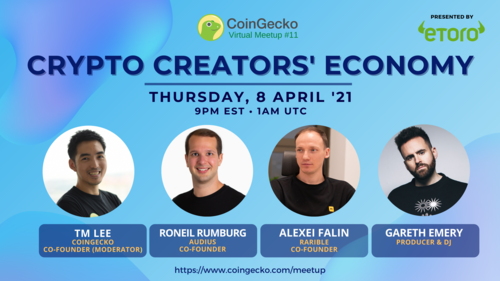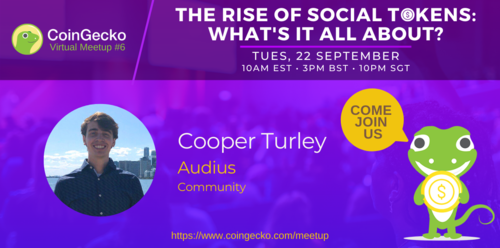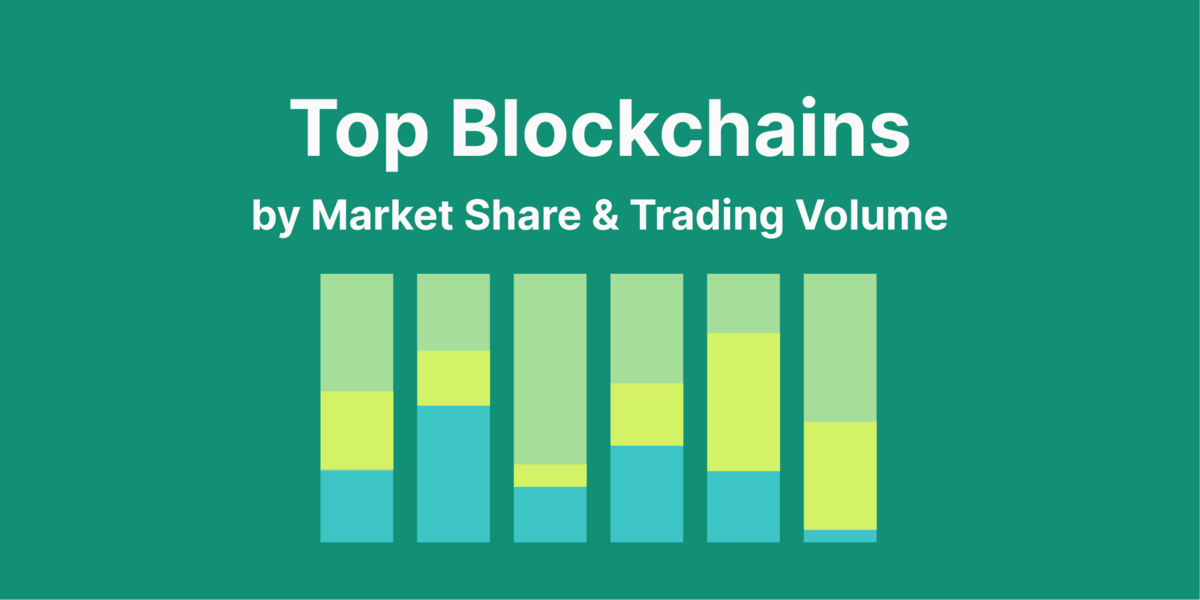We've seen a rise in Ethereum-based social tokens this year whereby creators can use the power of blockchain and decentralized finance to own, control and monetize the value of their social interactions across all platforms. To understand this new phenomenon better, we talked to pioneers of social tokens in our Virtual Meetup #6 on September 22, 2020 @ 10AM EST.
Held monthly, CoinGecko’s Virtual Meetup is our live online community event where we explore different key topics in the crypto sphere and invite industry leaders to share their two satoshis.
In this meetup, we talked to Alex Masmej and Brian Flynn who shared their experience in creating their own social tokens, $ALEX and $JAMM respectively, as well as Cooper Turley, a Community Lead at Audius and a talent agent for personal tokens.
What are social tokens?
Social token is an umbrella term for personal and community tokens that can be used in a lot of ways.
"It's like a stock," said Alex, "but centered around a person or a community instead of a company with equity."
Its value comes from the community, hence the term "social token". This may include exchanging a token for an hour of someone's time, securing sponsorship deals, or even fundraising.
If we consider $WHALE and $MEME tokens, they are essentially social tokens based on the concept of non-fungible tokens (NFT).
"Those tokens have digital scarcity so people who hold them think that they possess certain value," said Brian.
In short, the community decides the value of social tokens.
What inspired Alex to create his personal token?
"The COVID crisis made the $ALEX token a reality," confessed Alex.
Last year, Alex was given DAO funding for his startup but he couldn't repay in the short term. So they tokenized his debt by minting 1500 tokens redeemable for 1.10 DAI.
Following this, he was involved in a project working on marketing digital tokens. However, he still had the urge to continue with his startup plan and so $ALEX token was born in March 2020.
What was Cooper's role as a talent agency?
As a talent agency, Cooper works with multiple creators to better understand their needs and eventually standardize the personal token market.
"I want to set better standards on personal tokens and give them better legitimacy," said Cooper.
He is staking his reputation on this ambitious project as he sees a lot of value in social tokens.
Do you need technical knowledge to create social tokens?
While Roll has been used to create social tokens, Alex said that you can mint on stakeonme.com instead.
"You don't need technical knowledge but you still need to be a crypto native," said Alex.
FYI, being a crypto native means that you are familiar with the use of cryptocurrencies on various platforms and exchanges.
You can start with our How to Defi e-book to learn more about the different ways you can use and exchange cryptocurrencies in decentralized finance.
One of the problems with social tokens is the difficulty in distribution to an audience as there are no fiat on-ramps and you can't pay with credit cards.
Cooper added that if this issue is solved, creators don't need to work on manual distribution anymore and instead focus on the value that they can give.
What does it take for social tokens to go mainstream?
Cooper boiled it down into two main ways:
- better on-ramps to increase accessibility
- better tools for adoption
Brian added that it may only take one or two creators to use social tokens before being adopted by others as well. A perk of social tokens in a creator's point of view would be that it's interoperable so it could work on different platforms.
How can social tokens be used in politics?
"Bottom-up politicians will benefit from social tokens," said Alex. This will increase populism as fundraising for a political cause may create and strengthen a sense of community.
Brian disagreed with this as the concept of tokens is having exclusive excess to them. There would be no use case to it if fundraising is done with tokens. Furthermore, bribery may be more rampant.
"The system doesn’t yet reward people for being a leading politician," added Cooper. "Until there's a direct financial incentive to curate voting power, it's just going to be a hobbyist thing in the short term."
Politicians may also only adopt social tokens when they see potential gains in terms of voting as well as social standing.
What's the future for social tokens?
While social tokens are still limited by DeFi bottlenecks, Cooper is very bullish on this.
Once social tokens can be scaled up, they may benefit creators and leaders significantly especially in terms of community engagement.
Subscribe to CoinGecko Newsletter
Don’t miss out on our next Virtual Meetup! We’ll let you know when the next one is happening and who will be on it. Subscribe to our daily newsletter so that we can update you.

Diyana helps you to make sense of the complicated stuff. Follow the author on Twitter @diyana_eco





 Or check it out in the app stores
Or check it out in the app stores
